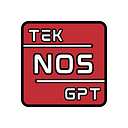Embaucher Développeurs en IA générative
Développeurs d'IA générative recherchant leur prochaine mission. Des juniors aux seniors et tout ce qui se trouve entre les deux, vous les trouverez tous ici.
New!
New!
Filtres de développeur
Affichage des développeurs disponibles. Réinitialiser les filtres
Inscrivez-vous maintenant pour voir plus de profils.
Accédez à notre vivier croissant de développeurs en IA.










